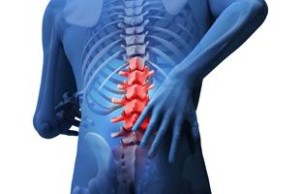Pain Management with Herbal Medicine:
Many seek to control their pain levels themselves, naturally. This can be very appealing to the patient for several reasons:
- They may feel that they understand what is going into their bodies by using herbs, while a prescription medication is a mystery chemical.
- Natural products tend to be cheaper than prescription painkillers.
- Patients feel they have more control over what they are taking, and how much.
- Patients may feel that natural products are safer and better-tolerated than prescription painkillers.
 Certainly prescription painkillers present the spectre of addiction, whereas very few over-the-counter herbal remedies are potent enough to be addictive. Pain is so variable day-to-day for most patients, that it makes sense they would wish to be able to tailor their medication to the circumstance – a lot easier with an herbal powder than with a prescribed capsule. Finally, having that sense of control is incredibly important to all patients, but especially patients who manage daily pain, because they have very little control over their condition, otherwise.
Certainly prescription painkillers present the spectre of addiction, whereas very few over-the-counter herbal remedies are potent enough to be addictive. Pain is so variable day-to-day for most patients, that it makes sense they would wish to be able to tailor their medication to the circumstance – a lot easier with an herbal powder than with a prescribed capsule. Finally, having that sense of control is incredibly important to all patients, but especially patients who manage daily pain, because they have very little control over their condition, otherwise.
The following is a discussion of some herbs that might be helpful for pain, from low to increasing severity.
Adaptogens are herbs that increase the body’s energy reserves, which means that if you take them long-term, you are less likely to feel ‘stressed’. Adaptogens are often the base herb for a personalized blend, because they are helpful for most people, and very benign.
- Ginseng
- Liquorice
- Shatavari
- Wild Oats
- Elder
- Hawthorn
- Schizandra
Calming herbs are gentle and mild, and can be imbibed throughout the day; they are moderately relaxing. Herbs like these are found in commercial tea blends, like Celestial Seasoning’s Tension Tamer Tea.
- Chamomile
- Catnip
- Goldenrod
- Withania
Relaxing herbs:
These herbs are often given as mild sedatives to help people sleep; some are also given for minor to moderate muscle pain. Motherwort is particularly helpful in cases of muscle pain plus emotional lability/irritability, and lavender shines as a relaxing, supportive herb that also has digestive properties.
- Hops
- Lemon Balm
- Damiana
- Skullcap
- Motherwort
- Lavender
- Ziziphus
- Passionflower
 There are herbs that are stronger painkillers and sedatives. However, it is important to remember that herbs are not all safe, simply because they are natural. Just like any powerful painkiller, you would want someone experienced to help the patient decide which herb was best for him or her, and to help determine a reasonable starting dose.
There are herbs that are stronger painkillers and sedatives. However, it is important to remember that herbs are not all safe, simply because they are natural. Just like any powerful painkiller, you would want someone experienced to help the patient decide which herb was best for him or her, and to help determine a reasonable starting dose.
If the patient wishes to learn about stronger herbs, he or she should find an experienced herbalist to discuss their pain, its character, its duration and severity, just as they would with a conventional physician.
Each of the listed herbs has a specific purpose (nerve pain, muscle pain, pain with anxiety, pain with depression) – and a specific temperament in which it is best applied. This is also where the herbalist comes in.
If the patient chooses to use herbs for pain control, they may feel more autonomous, experience fewer side effects, and be able to choose something that is specifically tailored to their condition and temperament, rather than one-size-fits-all medicine.